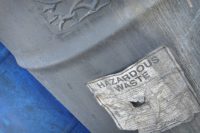DOL’s Proposed Enforcement Guidance for Fair Pay and Safe Workplaces
In May, 2015, the Department of Labor (DOL) issued a proposed guidance document for its personnel on complying with Executive Order 13673, Fair Pay and Safe Workplaces. The document is not yet finalized, however, it does offer insights into how OSHA and other agencies within the DOL intend to interpret and act upon the Order. […]










